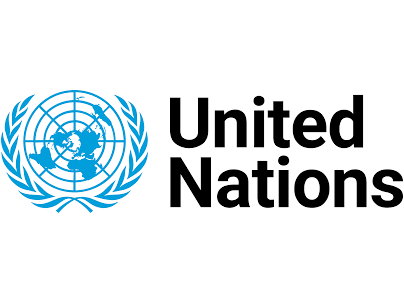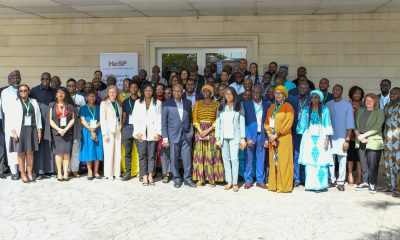Health
NCDC Records Two Deaths, 126 new COVID-19 Infections

The Nigeria Centre for Disease Control (NCDC) has announced two deaths and 126 new cases of COVID-19 infections in the country.
The NCDC made this known on its official twitter handle on Sunday.
The News Agency of Nigeria (NAN) reports that more than 502, 545 samples have been tested by the agency since the outbreak of the pandemic in the country in February.
It also said that the 126 new cases were recorded in 12 states, bringing the total number of confirmed cases to 58,324.
The NCDC stated that 72 patients had recovered and had been discharged in the last 24 hours, while the country recorded two coronavirus-related deaths.
According to NCDC, FCT tops the chart with 30 new cases of the infections followed by Lagos, Rivers and Ogun with 24, 23 and 13 cases respectively.
Other states with new infections, it said, included Katsina-9, Plateau-9, Ondo-6, Kaduna-4, Kwara-4, Imo-2, Bauchi-1 and Edo-1.
“Till date, 58,324 cases have been confirmed, 49,794 cases have been discharged and 1,108 deaths have been recorded in 36 states and the Federal Capital Territory,” it said.
It said that a multi-sectoral national Emergency Operations Centre, activated at Level 3, have continued to coordinate the national response activities across the country.
Meanwhile, the NCDC has said it is working hard to ensure travel into and out of the country is seamless while prioritising public health and safety.
The agency also said two new laboratories had been activated for inclusion in the NCDC Molecular Lab Network.
They are the Osun State University Multidisciplinary Research Laboratory, Osogbo, and Nasarawa State Diagnostic Laboratory, Lafia.
According to NCDC, testing at any laboratory in the NCDC network is free. (NAN)
Health
UN Women Trains Bauchi Artisans on Biogas Digester Installation

The UN Women says it has trained 20 artisans and seven agricultural extension workers on biogas digester installation, maintenance, and kitchen gardening to boost livelihoods in Bauchi’s rural communities.
The National Coordinator for the UN Women Biogas Projects,
Mr Desmond Osemije, disclosed this on Tuesday at the opening of the training in Bauchi.
Osemije said that the initiative was also designed to tackle climate challenges in rural communities.
He explained that the 20 technicians, primarily plumbers, were being equipped with the skills to install and maintain biogas digesters and will, in turn, train 250 rural women beneficiaries in Bauchi and Dass Local Government Areas.
Osemije further said that 250 rural women would benefit from the biogas digester, comprising 125 each from Bauchi and Dass LGAs.
“Additionally, seven agricultural extension workers are undergoing training to establish kitchen gardens, enabling rural households to grow vegetables and other crops for easy access to fresh food.
“This project seeks to improve the time use of women, boost agricultural productivity and incomes, enhance health standards, reduce deforestation, and contribute significantly to combating climate change,” Osemije said.
He also said that producing low-cost biogas from animal waste would provide rural women with affordable clean energy for cooking, reduce income and time poverty.
It will also lessen their exposure to health hazards and risks of gender-based violence.
Also speaking, Hajiya Marka Abbas, the National Public Relations Officer of the Small Scale Women Farmers Organization of Nigeria, underscored the need for collaboration with UN Women to promote sustainable agricultural practices and a cleaner environment.
She said that the project not only trains women and artisans to install and maintain bio-digesters, but also creates opportunities for income generation and economic independence.
“By converting waste into biogas and organic fertiliser, the project supports a circular economy, lowers greenhouse gas emissions, and combats deforestation.
“The initiative is being implemented in partnership with the Bauchi State Government through the Ministries of Women Affairs and Agriculture,” she said
A participant, Miss Fatima Usman, expressed optimism that the training would enhance her livelihood and pledged to pass on the knowledge to other rural women. (NAN)
FEATURES
Why Genotype Compatibility Matters in Preventing Sickle Cell

Sickle Cell Disease (SCD) is a genetic blood disorder that arises when both parents carry the sickle cell gene, creating a 25 per cent chance of transmitting the disease to their offspring with each pregnancy.
Globally, an estimated 400,000 babies are born annually with SCD.
Medical experts have consistently warned that genotype incompatibility remains the leading cause of new cases and should be a central consideration among intending couples.
According to them, avoiding unions between carriers, especially those with AS and SS genotypes could greatly reduce new incidences, limiting them to carriers alone.
In high-income countries, the average life expectancy for individuals living with SCD is approximately 57 years.
However, the outlook is more severe in Sub-Saharan Africa, where 50 to 80 per cent of children born with the disease die before the age of five.
In contrast, babies born with SCD in the United States have a 95 per cent chance of reaching adulthood.
Given these disparities, experts are unanimous that prevention is the most effective and affordable strategy for eliminating the disease.
Prof. Titus Ibekwe, Provost of the College of Health Sciences, University of Abuja, underscored this view during a recent public lecture in Abuja.
It was titled “The Evolving Therapeutic Landscape in Sickle Cell Disease”.
He emphasised the importance of proactive partner selection based on genotype compatibility.
“Prevention is key in the fight against sickle cell, and this costs nothing.
“It simply means paying close attention when choosing a life partner ensuring that individuals with the AS genotype do not marry another AS.
It is also that an AS does not marry an SS, or two SS individuals do not marry”.
Ibekwe explained that such unions greatly increase the risk of having children with SCD, and that sustained adherence to genotype-based partner selection could drastically reduce, if not eliminate, the disease burden.
Beyond prevention, Ibekwe noted that treatment options for individuals living with the disease have expanded, including advanced therapies such as bone marrow transplantation and gene therapy.
He explained that gene therapy aims to correct the faulty gene responsible for the disease, allowing it to function like a healthy one.
Also speaking on the burden of SCD in Nigeria is Dr Maureen Achebe, Clinical Director of Haematology at Harvard’s Brigham and Women’s Hospital and Associate Professor of Medicine at Harvard Medical School.
She disclosed that Nigeria bears the highest global burden of the disease.
“Every year, 300,000 babies are born with SCD in Sub-Saharan Africa, and 150,000 of them are born in Nigeria alone,” she said.
Achebe outlined this as a major public health concern and warned that, with Nigeria’s high fertility rate, the number is expected to rise greatly by 2030.
She advocated for newborn screening to detect SCD before symptoms begin, noting that babies appear normal at birth but benefit greatly from early diagnosis and care.
“Without early identification and intervention, infants will continue to die of undiagnosed anaemia, pneumococcal sepsis, or severe malaria,” she said.
Achebe noted that the sickle cell trait historically evolved as a natural protection against malaria.
According to her, individuals who carry one sickle cell gene (AS genotype) are less likely to die from severe malaria compared to those without the gene (AA genotype).
“However, those with full-blown SCD suffer from chronic complications, reduced quality of life, poor educational and professional outcomes, and premature mortality,” she said.
Additionally, she emphasised the importance of preventive strategies, urging the use of vaccinations, daily folic acid supplements, and proactive infection control.
She also recommended hydroxyurea as a proven daily treatment that improves survival rates and reduces the severity of symptoms.
While she recognised the promise of gene therapy and bone marrow transplantation, she pointed out their high costs, limited accessibility, and the fact that children under 12 tend to respond better to these treatments.
Achebe clarified that while gene therapy treats the symptoms and effects of the disease, it does not eliminate the sickle cell gene from the patient’s reproductive cells, meaning affected individuals can still pass it to their children.
She warned that the total economic toll of SCD in Sub-Saharan Africa currently stands at over $9.1 billion annually, projected to rise to $10 billion by 2030.
“Tackling SCD requires strong financial and political will to scale up newborn screening and ensure nationwide access to care,” she said.
Achebe further stressed the need for public awareness, early diagnosis, and cultural education to dispel myths surrounding the disease.
“Sickle Cell Disease is a scientifically inherited condition, not caused by witchcraft,” she affirmed.
In the same vein, Prof. Obiageli Nnodu, Director of the Centre of Excellence for Sickle Cell Disease Research and Training (CESRTA), University of Abuja, highlighted the importance of continued research and capacity building.
She explained that CESRTA, established in 2015, has made major progress in clinical and translational research to bridge treatment gaps in Nigeria and beyond.
“Our centre provides platforms for skills development and engages in strategic collaborations with local and international institutions to improve care outcomes,” she said.
Following the 5th Global Congress on Sickle Cell Disease, the centre was upgraded to the National Centre of Excellence for SCD Research.
This is a major milestone in Nigeria’s efforts to combat the disease.
As the world marks World Sickle Cell Day on June 19, experts are calling for a renewed push toward genotype awareness, partner compatibility, and universal newborn screening as critical tools in the fight to eliminate SCD. (NANFeatures)
Health
Contraceptive Pills Can’t Cause Cervical Cancer – Expert

Mrs Roseline Akinlabi, Adolescent and Youth Sexual Reproductive Health Desk Officer, Osun Primary Healthcare Board, says contraceptive pills cannot cause cancer of the cervix in women.
Akinlabi, a certified family planning trainer, said this on Monday in Osogbo during a virtual engagement programme organised by the State Public Health media team in collaboration with a non-governmental organisation, The Challenge Initiative (TCI).
She spoke on “The impacts of Family Planning Myths And Misconceptions on Spacing, Unplanned Pregnancy and Unsafe Abortion”.
The expert, also a registered public health nurse, said that the popular belief that contraceptive pills could encourage infidelity and cause permanent infertility in women was inaccurate.
According to her, contraceptive pills cannot cause cancer of the ovary and the lining of the uterus in women, as being speculated.
“Myths and misconceptions are the major challenge to uptake of family planning in the state and the country at large.
“Various myths and misconceptions about family planning methods have led to high prevalence of teenage pregnancy, high maternal, mortality and morbidity rate, among others.
“These myths and misconceptions often surround family planning methods, creating confusion and hindering access to essential care.
“They negatively impact child spacing and abortion rates by preventing the use of contraceptives, leading to unwanted pregnancies, and subsequently, more abortions.
“These false beliefs create barriers to access and utilisation of family planning methods, increasing the risks of unwanted pregnancies and risky sexual behaviour.
“There is urgent need to dispel these myths and equip individuals with accurate facts to make informed decisions about their reproductive health”, she said.
Akinlabi called for collective responsibilities to dispel rumours about contraceptives, raise awareness about the benefits of family planning, and create safer space for girls and women in the society.
According to her, family planning empowers individuals to choose the number, spacing and timing of their children, leading to improved health outcomes for the mother and the child.(NAN)


























